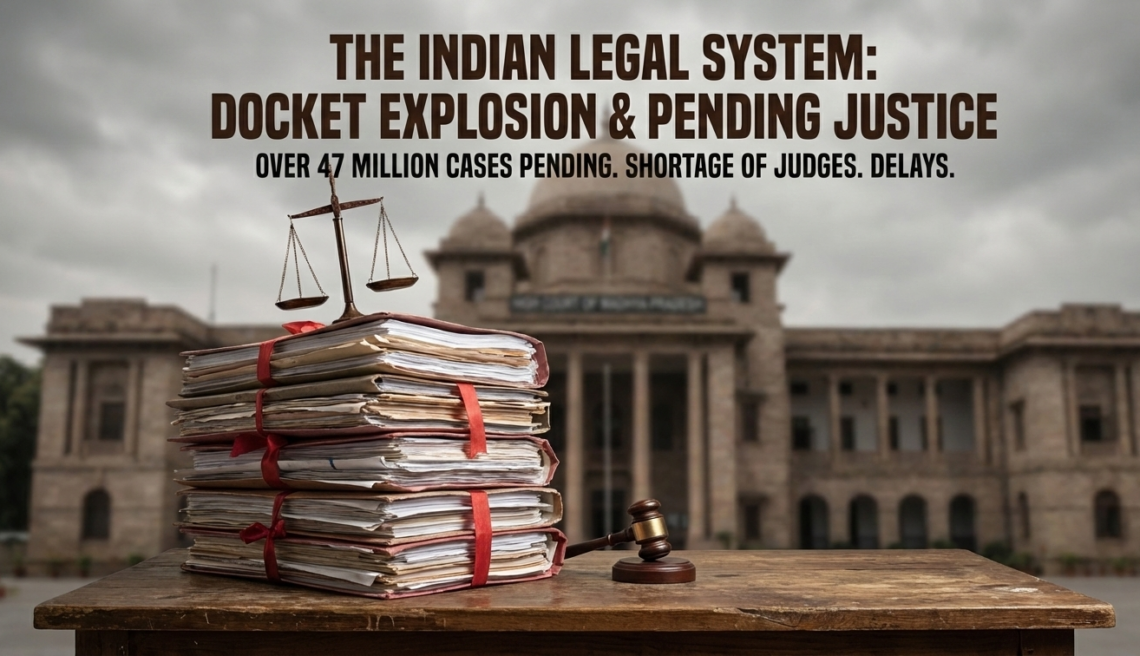By Siddharth Shukla
The Indian legal system is facing a massive problem of arrears of pending cases. According to data from the National Judicial Data Grid, as of December 2020, there were over 47 million cases pending in Indian courts. This includes over 37 million cases pending in lower courts and over 10 million cases pending in higher courts.
One of the main reasons for the high number of pending cases is the shortage of judges. The sanctioned strength of judges in the Indian judiciary is around 30,000, but the actual number of judges is only around 20,000. This means that there is a shortage of around 10,000 judges. This shortage of judges leads to a backlog of cases and long delays in getting a case heard.
Another reason for the high number of pending cases is the slow pace of the legal system. The Indian legal system is known for its slow and cumbersome nature, with cases often taking years or even decades to be resolved. This slow pace is due to a number of factors, including a lack of technology and resources, a complex legal system, and a large number of adjournments in cases.
The problem of pending cases also has a significant impact on the lives of citizens. Many citizens, especially those from marginalized communities, struggle to get justice due to the long delays in the legal system. This can lead to a loss of faith in the justice system and a lack of trust in the government.
To address this problem, the Indian government has taken a number of steps in recent years, including increasing the number of judges, providing more resources to the courts, and introducing technology to improve the efficiency of the legal system. However, more needs to be done to address the root causes of the problem, such as the shortage of judges and the slow pace of the legal system.
In addition to the steps taken by the government, there needs to be a concerted effort by all stakeholders, including the judiciary, the government, and the legal profession, to address this problem. This could include measures such as increasing the number of judges, improving the efficiency of the legal system, and providing more resources to the courts.
In conclusion, the massive arrears of pending cases in the Indian legal system is a major problem that needs to be addressed. The shortage of judges, slow pace of the legal system, and lack of resources are some of the main reasons behind this problem. The Indian government has taken some steps to address this problem, but more needs to be done to ensure that citizens can get justice in a timely manner.
Disclaimer: The information contained in the article is for general informational purposes only and is not intended as a substitute for professional legal or financial advice. Readers should not act upon the information contained in the article without seeking appropriate legal or financial advice from a qualified professional. Advocate Siddharth Shukla, Siddharth Shukla Office and its affiliates do not accept any responsibility for any loss or damage arising from the use of information contained in the article.


